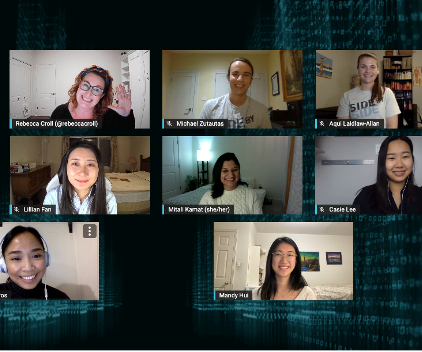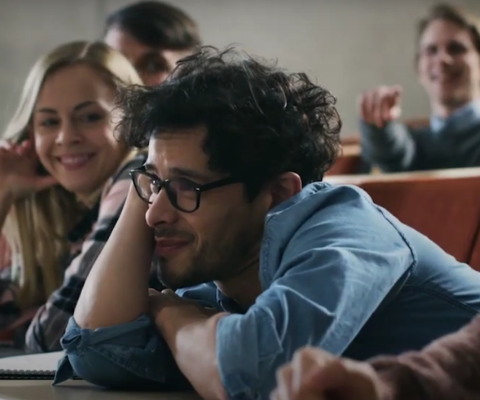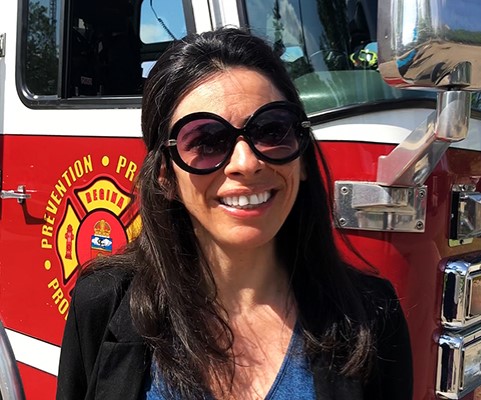Que ferez-vous avec un diplôme en arts?
Texte sur l’écran : [What are you going to do with an arts degree?]
Stacey De Molitor, Mount Saint Vincent University :
One of the first things as arts students that we’re asked when people find out that we’re arts students is, “What are you going to do with your degree?”
Ian Wereley, Carleton University :
I see the value of liberal arts and humanities education kind of like a drawing. So other disciplines provide the lines and the arts and humanities provides the texture or the colour and the shading of our world.
Nicoletta Adessa, Université d’Ottawa :
Présentement, je travaille dans un domaine qui n’est pas nécessairement traditionnel pour ceux et celles qui étudient dans les arts. Je travaille dans le domaine de STEM, puis je suis fière d’être une femme qui travaille dans le domaine de STEM. Présentement, je fais la communication pour une firme de génie et c’est grâce à mes études en arts puis en lettre française puis en communication que j’ai pu prendre ce poste.
Valérie Robitaille, Université Concordia :
I’ve been told that so many times. “Why would you study that? You’re never going to get anything from that.” But, I mean, I’ve been working in tech for two years now doing really well, and I think this is where I’m going to stay.
Kehan Fu, University of Saskatchewan :
The subjectivity of it with each individual, let’s say, going through a different liberal arts degree, having very different experiences based on the diversity of knowledge and the diversity of faculty and their passions, it means that you really are experiencing a unique flavour, a unique perspective.
Stacey De Molitor, Mount Saint Vincent University :
A lot of students, when they graduate university, they talk about being faced with a fork in the road, that they have a choice, they can either go here and further their studies or they can go here into the specified field. Well, arts students, we find ourselves in an open field. We can go any direction we want.
Kehan Fu, University of Saskatchewan :
Some of the most powerful companies in today’s world exist because they have great communication, great brand design, great governance structure. It’s great management of their individual talents and people skills.
Ian Wereley, Carleton University :
Everyone needs to know the context and the background to what’s going on around us, and I think just as humanities students need education in science and technology, the opposite is also true, in that everyone needs to know how to write and to think and to analyse and to place things in context. So I think everybody would value from even a dose of humanities and arts education, yes.
Stacey De Molitor, Mount Saint Vincent University :
So we get that question, “What are you going to do with your degree?” And really the answer is, anything we want.
Texte sur l’écran : [Logos d’Universities Canada et de la Fédération des sciences humaines]
Des étudiants en arts libéraux de l’ensemble du pays soulignent la valeur d’une formation en arts et en sciences humaines, font part de leur expérience et répondent à la question qui revient souvent : « Que ferez-vous avec un diplôme en arts? »
*Dans la vidéo et sa transcription, le français et l’anglais sont utilisés en alternance.
Catégorie : Recherche et technologie



